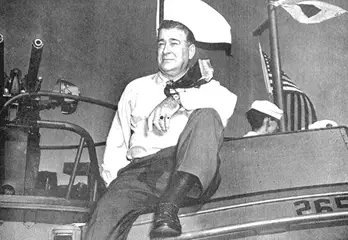Charles Haddon Spurgeon was known by many as “the Prince of Preachers.” His books continue to be in print, and his sermons are read by a large number of evangelical Christians in the 21st century. The Metropolitan Tabernacle Church, where he became renowned for his expository preaching, is still a strong congregation today. His legacy of Biblical preaching is alive and well at this church and in many places around the world.
During our British Baptist tour, which included a visit to the Metropolitan Tabernacle, Pam and I listened to one of the church leaders, Chris Cooper, describe the vitality of the current ministry of the congregation. He also offered a commentary on the secular culture which has now become entrenched in Britain. Adversaries of the Christian gospel are omnipresent in this nation where the message of Christ was once welcomed openly. Now evangelical Christians are a very small but distinct minority living and serving amidst the multi-cultural political correctness of the British society.
As I heard this testimony, my mind raced to Psalm 137. Here, the Psalmist sadly paints a picture of God’s people held captive by adversaries of the redemptive message of the Lord: “When we remembered Zion, we wept” was the tearful message of the psalmist. He and others reflected upon the good memories of their home land with a sense of painful sadness. They could remember the times when the joy of freely worshiping God was their way of life. No, the people of God were taunted and insulted by the voices found in this culture of captivity.
Spurgeon’s Britain is gone! Yet, evangelical churches, like the Metropolitan Tabernacle, are finding ways to “sing the Lord’s song in a strange land.” They are focusing upon the younger generation of London, especially on the south side of town where immigrants from other countries have come to Great Britain. People from African and Caribbean nations currently represent the largest number of worshippers at the church. They and others are hungry for the gospel and they are responding to Christ by becoming faithful followers of Him in a strange land.
As evangelicals in Britain face this culture of captivity, those of us who claim the name of Christ across the Atlantic need to seriously study ways in which we can effectively communicate the Gospel in an environment fast becoming hostile to the Christian message. Of course, as the old adage reminds us, this is much easier said than done.
During this visit to Great Britain, I experienced a growing sense of renewal or revival coming in my life. I am not a Charles Haddon Spurgeon but, like you, I am a follower of Christ and I want to be found faithful to Him in the day in which I live. You and I did not choose this period of history for the living of our lives, but it is our time and, like all epochs, it is God’s time. Together, as a small but hopefully distinct minority in this culture of captivity, we must rededicate ourselves to the task of faithfully and effectively communicating the gospel of Christ in the time in human history God has given us. This, in essence, is living faithfully for Christ in a culture of captivity. Let us “sing the Lord’s song in a strange land.”




